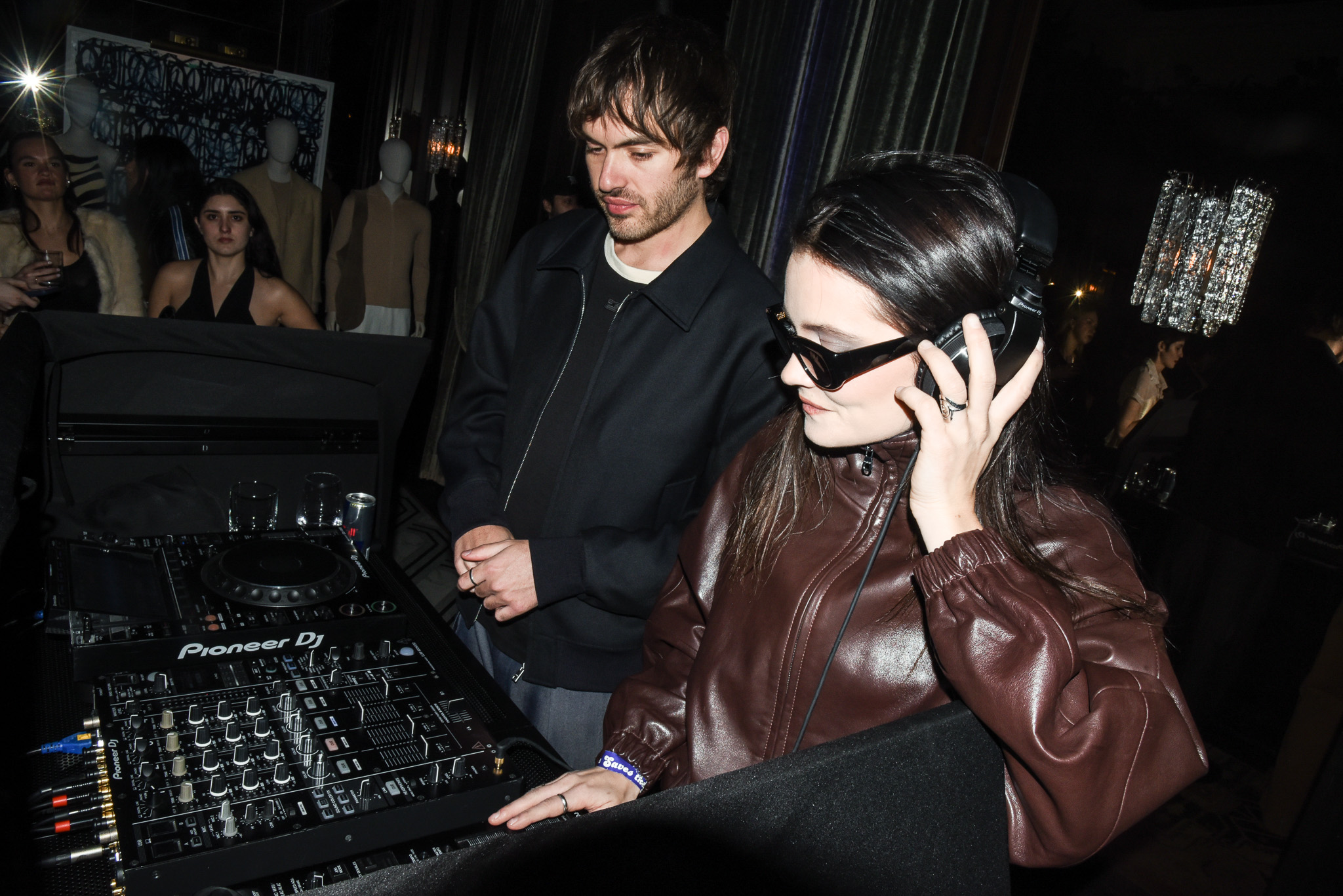

ILLUSTRATION: JOSEPH DANIEL FIEDLER AT SCARYJOEY.COM
[](https://flaunt-mag.squarespace.com/config/pages/587fe9d4d2b857e5d49ca782#)[](https://flaunt-mag.squarespace.com/config/pages/587fe9d4d2b857e5d49ca782#)
He is a Beast of Burden
We call him Human.
_The world only goes round by misunderstanding._
—Charles Baudelaire
In the squalor of a Harlem apartment, a man nurses a collection of raw, festering wounds. He’s told a series of emergency rooms of an aggressive pit bull. He’s cagey, nervous. His neighbors have started to view him with suspicion, his muttering of strange sounds and smells, covered windows and guarded doors. One could correctly speculate a darkly perverse private life or mental illness. The objects of his obsession—oh, the wild and blood-charged objects—have grown thick with muscle, blaze with color and sheen. Within the dingy inner-sanctum, within the thrice painted and slanting walls: a temple, boasting living demons. A crocodile—that Byzantine emerald-scaled leviathan—housed in a shallow kiddy pool filled with stale water. And ruling the few poor rooms, that most seductive and terrifying of beasts: a radiant and virile Bengal tiger. One can only imagine the man’s lonely hours in prison, his shrine discovered and defiled by the Police, ASPCA. Dreaming of his lost loves in his grey-washed cell, of the golden eyes, big as apricots, reflecting eternal devotion, a devotion that the cat itself would never truly understand or return.
_In what distant deeps or skies_ _burnt the fire of thine eyes?_ _On what wings dare he aspire?_ _What the hand dare seize the fire?_ —William Blake, The Tyger
Humans. We know we are going to die. This fact is the root of everything we do and think.
Every mental flailing and idiotic thrust of limb that precedes the blackout is defined by its very inevitability. What illogical frenzies are driven by the unique human need to join with the infinite? To not be pointless and unknown, but to be acknowledged by some greater power seems to be the ultimate purpose. We see this hysteria take many exotic forms: the man whose serial families bristle from his footsteps like poisoned mushrooms; the ecstasy of asceticism (as much in the modern Gwyneth as in the medieval monk); the harrowing imprisonment of addiction to grease, smoke, and chemistry. All blind, vain attempts to inoculate our frail minutes with deeper meaning and pleasure.
And there are animals. Surely the domesticated beasts of civilization have practicalities, from threshold guard to beast of burden. But deeper in the dark and inexplicable corridors of our limbic systems glows the lantern-eyed regard of the house-cat; the blissful canine ‘smile.’ The Egyptian Bast wasn’t the only Cat Goddess in history. And even today, her narrow-hipped attitude slinks through our railroad apartments, her owlish depths of hazel and blue—brimming with a young godling’s exotic secrets—peer from plastic carriers on the way to the nail trimmer. Deity flows from these new wolves and falcons and earth dragons, whose genes have been coaxed into the perfect mirror of human emotion. And their perceived response to us in the form of love, understanding, and memory elevates us by proxy to Olympians beside them.
But these creatures are no longer wild. The gun of civilization is pointed firmly against their skulls throughout their abnormally extended and lazy lifetimes, and that weapon is ever prepared to execute swift punishment for any inconveniently natural behaviors. The wolf DNA has been wrung mercilessly from the fragile toy dog frame, and he now relies on the Parises and Kims of the world for protection. A great gulf divides these helpless creatures from their apex predator ancestors...and still, the Pomeranian licks your face, not out of affection, but seeking the tasty salt of human sweat and saliva.
To the impassioned few, the humbling domestication that crops the spiritual claws of the Earth’s great beasts leaves the romance stale and tasteless. These acolytes long for the love of monsters more worthy of complete devotion—true gods and demi-gods—the wildest creatures on earth. “Love me Love me Love me, divine creature whose regard makes my rude flesh and fleeting days so holy,” cries the wild man, the high priestess. The red-cloaked princess runs through a forest of white wolves, howling.
Consider the last moments of Terry Thompson, surrounded by his dead and dying flock of exotics in the most unlikely and flawed of Edens, Zanesville, Ohio. The lions snatching the diseased baboons fleeing the compound; tigers screaming their last breaths as they are gunned down by authorities—this was the catharsis of animal connection at its most insane extreme. His unruly grounds had teemed with the predator giants, grizzlies, wolves, and the lordliest of cats: Lions and Tigers. Many conjectured that his suicide was incited by debts and marriage failure, but one could also suppose that a broken heart moved his hand, that a cold shock of clarity brought the great animal divide into his consciousness. That the animals he was known to ‘kiss’ on the mouth were truly just tasting him, relishing the salty sweat, if not the devotion in his heart. In the end, he set them and himself free—but only to the great inevitable—in a baroque frenzy of gothic despair.
_And she was mine, she was mine,_ _the key was in my fist,_ _my fist was in my pocket,_ _she was mine._ —Vladimir Nabokov, Lolita
The annals of history record many such tales of woe. Children devoured by enormous serpents, kept long beyond their owners’ ability to contain their endlessly growing bodies. Men leaving family and friends to bind themselves to bear tribes, only to be hideously consumed without warning after years of apparent truce and affection. Dark whispers of the ‘unnatural’ surround women who forsake human companions for male baboons and the wild voices of great birds. And it ends in tears, bloodshed, injury, disfigurement, imprisonment, and, on occasion—a gunshot.
Along with infinite powers of projection and denial, there is another unique human quality in this passion play: hubris. We have ‘subdued’ the earth with science and technology, guns, and genetics. Oh but how soft, pink, and vulnerable our foolish bodies are! And seeing the glacial power of a polar bear following her instincts suddenly makes our science seem very small, and it becomes clear at the moment of tragedy that the Tiger who had seemed so tamed was simply not piqued enough to attack until that very moment.
Only rarely are there examples of the correct mingling of devotion and knowledge that is the golden key to the heart of Eden. Few humans could have given their lives and bodies to animals more intimately than Bill Haast, the ‘Snake Man,’ who gave his limbs, blood, and days to the study of venomous serpents. He ‘milked’ snakes of their venom for study, and even injected himself with various venoms on a daily basis, causing his blood to become one of the most powerful and versatile anti-venom serums in the world. He was airlifted around the world to give his own blood to snake bite victims, once travelling deep into the jungles of Venezuela to give a boy a precious pint. He lived to more than 100 years old, and shyly attributed his continued good health to the venom throbbing in his veins. Though impassioned and devoted to his charges, Bill never lost sight of the great divide between himself and his ancient and magical charges. His graceful widow Nancy, who continues his work at the Miami Serpentarium, tells us “Bill especially admired and respected the creation of nature in the form of serpents. They are their own beings, separate and apart, living completely by instinct, and he respected them far too much and knew their nature far too well to subject them to any anthropomorphic familiarity.”
In Bill’s own words, “Attitude, rather than disposition, is more definitive of serpent behavior. From the moment they emerge into this world until they complete their life cycle their attitude is ‘Don’t tread on me; I am well equipped to defend myself but content to pass through life unnoticed. I mean no harm to anything or anyone that our creator has not provided as my bill of fare. I am self-sustaining and I like it that way, please pass me by.’”
Alongside our trudge towards certainty of mortality, there is another sure thing: that all creatures will continue to follow their instincts and seek endlessly the object of their evolution; for humans, the search for the divine in the world and in themselves; for Tigers, solitude...and meat.
 
ILLUSTRATION: JOSEPH DANIEL FIEDLER AT SCARYJOEY.COM
[](https://flaunt-mag.squarespace.com/config/pages/587fe9d4d2b857e5d49ca782#)[](https://flaunt-mag.squarespace.com/config/pages/587fe9d4d2b857e5d49ca782#)
He is a Beast of Burden
We call him Human.
_The world only goes round by misunderstanding._
—Charles Baudelaire
In the squalor of a Harlem apartment, a man nurses a collection of raw, festering wounds. He’s told a series of emergency rooms of an aggressive pit bull. He’s cagey, nervous. His neighbors have started to view him with suspicion, his muttering of strange sounds and smells, covered windows and guarded doors. One could correctly speculate a darkly perverse private life or mental illness. The objects of his obsession—oh, the wild and blood-charged objects—have grown thick with muscle, blaze with color and sheen. Within the dingy inner-sanctum, within the thrice painted and slanting walls: a temple, boasting living demons. A crocodile—that Byzantine emerald-scaled leviathan—housed in a shallow kiddy pool filled with stale water. And ruling the few poor rooms, that most seductive and terrifying of beasts: a radiant and virile Bengal tiger. One can only imagine the man’s lonely hours in prison, his shrine discovered and defiled by the Police, ASPCA. Dreaming of his lost loves in his grey-washed cell, of the golden eyes, big as apricots, reflecting eternal devotion, a devotion that the cat itself would never truly understand or return.
_In what distant deeps or skies_ _burnt the fire of thine eyes?_ _On what wings dare he aspire?_ _What the hand dare seize the fire?_ —William Blake, The Tyger
Humans. We know we are going to die. This fact is the root of everything we do and think.
Every mental flailing and idiotic thrust of limb that precedes the blackout is defined by its very inevitability. What illogical frenzies are driven by the unique human need to join with the infinite? To not be pointless and unknown, but to be acknowledged by some greater power seems to be the ultimate purpose. We see this hysteria take many exotic forms: the man whose serial families bristle from his footsteps like poisoned mushrooms; the ecstasy of asceticism (as much in the modern Gwyneth as in the medieval monk); the harrowing imprisonment of addiction to grease, smoke, and chemistry. All blind, vain attempts to inoculate our frail minutes with deeper meaning and pleasure.
And there are animals. Surely the domesticated beasts of civilization have practicalities, from threshold guard to beast of burden. But deeper in the dark and inexplicable corridors of our limbic systems glows the lantern-eyed regard of the house-cat; the blissful canine ‘smile.’ The Egyptian Bast wasn’t the only Cat Goddess in history. And even today, her narrow-hipped attitude slinks through our railroad apartments, her owlish depths of hazel and blue—brimming with a young godling’s exotic secrets—peer from plastic carriers on the way to the nail trimmer. Deity flows from these new wolves and falcons and earth dragons, whose genes have been coaxed into the perfect mirror of human emotion. And their perceived response to us in the form of love, understanding, and memory elevates us by proxy to Olympians beside them.
But these creatures are no longer wild. The gun of civilization is pointed firmly against their skulls throughout their abnormally extended and lazy lifetimes, and that weapon is ever prepared to execute swift punishment for any inconveniently natural behaviors. The wolf DNA has been wrung mercilessly from the fragile toy dog frame, and he now relies on the Parises and Kims of the world for protection. A great gulf divides these helpless creatures from their apex predator ancestors...and still, the Pomeranian licks your face, not out of affection, but seeking the tasty salt of human sweat and saliva.
To the impassioned few, the humbling domestication that crops the spiritual claws of the Earth’s great beasts leaves the romance stale and tasteless. These acolytes long for the love of monsters more worthy of complete devotion—true gods and demi-gods—the wildest creatures on earth. “Love me Love me Love me, divine creature whose regard makes my rude flesh and fleeting days so holy,” cries the wild man, the high priestess. The red-cloaked princess runs through a forest of white wolves, howling.
Consider the last moments of Terry Thompson, surrounded by his dead and dying flock of exotics in the most unlikely and flawed of Edens, Zanesville, Ohio. The lions snatching the diseased baboons fleeing the compound; tigers screaming their last breaths as they are gunned down by authorities—this was the catharsis of animal connection at its most insane extreme. His unruly grounds had teemed with the predator giants, grizzlies, wolves, and the lordliest of cats: Lions and Tigers. Many conjectured that his suicide was incited by debts and marriage failure, but one could also suppose that a broken heart moved his hand, that a cold shock of clarity brought the great animal divide into his consciousness. That the animals he was known to ‘kiss’ on the mouth were truly just tasting him, relishing the salty sweat, if not the devotion in his heart. In the end, he set them and himself free—but only to the great inevitable—in a baroque frenzy of gothic despair.
_And she was mine, she was mine,_ _the key was in my fist,_ _my fist was in my pocket,_ _she was mine._ —Vladimir Nabokov, Lolita
The annals of history record many such tales of woe. Children devoured by enormous serpents, kept long beyond their owners’ ability to contain their endlessly growing bodies. Men leaving family and friends to bind themselves to bear tribes, only to be hideously consumed without warning after years of apparent truce and affection. Dark whispers of the ‘unnatural’ surround women who forsake human companions for male baboons and the wild voices of great birds. And it ends in tears, bloodshed, injury, disfigurement, imprisonment, and, on occasion—a gunshot.
Along with infinite powers of projection and denial, there is another unique human quality in this passion play: hubris. We have ‘subdued’ the earth with science and technology, guns, and genetics. Oh but how soft, pink, and vulnerable our foolish bodies are! And seeing the glacial power of a polar bear following her instincts suddenly makes our science seem very small, and it becomes clear at the moment of tragedy that the Tiger who had seemed so tamed was simply not piqued enough to attack until that very moment.
Only rarely are there examples of the correct mingling of devotion and knowledge that is the golden key to the heart of Eden. Few humans could have given their lives and bodies to animals more intimately than Bill Haast, the ‘Snake Man,’ who gave his limbs, blood, and days to the study of venomous serpents. He ‘milked’ snakes of their venom for study, and even injected himself with various venoms on a daily basis, causing his blood to become one of the most powerful and versatile anti-venom serums in the world. He was airlifted around the world to give his own blood to snake bite victims, once travelling deep into the jungles of Venezuela to give a boy a precious pint. He lived to more than 100 years old, and shyly attributed his continued good health to the venom throbbing in his veins. Though impassioned and devoted to his charges, Bill never lost sight of the great divide between himself and his ancient and magical charges. His graceful widow Nancy, who continues his work at the Miami Serpentarium, tells us “Bill especially admired and respected the creation of nature in the form of serpents. They are their own beings, separate and apart, living completely by instinct, and he respected them far too much and knew their nature far too well to subject them to any anthropomorphic familiarity.”
In Bill’s own words, “Attitude, rather than disposition, is more definitive of serpent behavior. From the moment they emerge into this world until they complete their life cycle their attitude is ‘Don’t tread on me; I am well equipped to defend myself but content to pass through life unnoticed. I mean no harm to anything or anyone that our creator has not provided as my bill of fare. I am self-sustaining and I like it that way, please pass me by.’”
Alongside our trudge towards certainty of mortality, there is another sure thing: that all creatures will continue to follow their instincts and seek endlessly the object of their evolution; for humans, the search for the divine in the world and in themselves; for Tigers, solitude...and meat.

ILLUSTRATION: JOSEPH DANIEL FIEDLER AT SCARYJOEY.COM
[](https://flaunt-mag.squarespace.com/config/pages/587fe9d4d2b857e5d49ca782#)[](https://flaunt-mag.squarespace.com/config/pages/587fe9d4d2b857e5d49ca782#)
He is a Beast of Burden
We call him Human.
_The world only goes round by misunderstanding._
—Charles Baudelaire
In the squalor of a Harlem apartment, a man nurses a collection of raw, festering wounds. He’s told a series of emergency rooms of an aggressive pit bull. He’s cagey, nervous. His neighbors have started to view him with suspicion, his muttering of strange sounds and smells, covered windows and guarded doors. One could correctly speculate a darkly perverse private life or mental illness. The objects of his obsession—oh, the wild and blood-charged objects—have grown thick with muscle, blaze with color and sheen. Within the dingy inner-sanctum, within the thrice painted and slanting walls: a temple, boasting living demons. A crocodile—that Byzantine emerald-scaled leviathan—housed in a shallow kiddy pool filled with stale water. And ruling the few poor rooms, that most seductive and terrifying of beasts: a radiant and virile Bengal tiger. One can only imagine the man’s lonely hours in prison, his shrine discovered and defiled by the Police, ASPCA. Dreaming of his lost loves in his grey-washed cell, of the golden eyes, big as apricots, reflecting eternal devotion, a devotion that the cat itself would never truly understand or return.
_In what distant deeps or skies_ _burnt the fire of thine eyes?_ _On what wings dare he aspire?_ _What the hand dare seize the fire?_ —William Blake, The Tyger
Humans. We know we are going to die. This fact is the root of everything we do and think.
Every mental flailing and idiotic thrust of limb that precedes the blackout is defined by its very inevitability. What illogical frenzies are driven by the unique human need to join with the infinite? To not be pointless and unknown, but to be acknowledged by some greater power seems to be the ultimate purpose. We see this hysteria take many exotic forms: the man whose serial families bristle from his footsteps like poisoned mushrooms; the ecstasy of asceticism (as much in the modern Gwyneth as in the medieval monk); the harrowing imprisonment of addiction to grease, smoke, and chemistry. All blind, vain attempts to inoculate our frail minutes with deeper meaning and pleasure.
And there are animals. Surely the domesticated beasts of civilization have practicalities, from threshold guard to beast of burden. But deeper in the dark and inexplicable corridors of our limbic systems glows the lantern-eyed regard of the house-cat; the blissful canine ‘smile.’ The Egyptian Bast wasn’t the only Cat Goddess in history. And even today, her narrow-hipped attitude slinks through our railroad apartments, her owlish depths of hazel and blue—brimming with a young godling’s exotic secrets—peer from plastic carriers on the way to the nail trimmer. Deity flows from these new wolves and falcons and earth dragons, whose genes have been coaxed into the perfect mirror of human emotion. And their perceived response to us in the form of love, understanding, and memory elevates us by proxy to Olympians beside them.
But these creatures are no longer wild. The gun of civilization is pointed firmly against their skulls throughout their abnormally extended and lazy lifetimes, and that weapon is ever prepared to execute swift punishment for any inconveniently natural behaviors. The wolf DNA has been wrung mercilessly from the fragile toy dog frame, and he now relies on the Parises and Kims of the world for protection. A great gulf divides these helpless creatures from their apex predator ancestors...and still, the Pomeranian licks your face, not out of affection, but seeking the tasty salt of human sweat and saliva.
To the impassioned few, the humbling domestication that crops the spiritual claws of the Earth’s great beasts leaves the romance stale and tasteless. These acolytes long for the love of monsters more worthy of complete devotion—true gods and demi-gods—the wildest creatures on earth. “Love me Love me Love me, divine creature whose regard makes my rude flesh and fleeting days so holy,” cries the wild man, the high priestess. The red-cloaked princess runs through a forest of white wolves, howling.
Consider the last moments of Terry Thompson, surrounded by his dead and dying flock of exotics in the most unlikely and flawed of Edens, Zanesville, Ohio. The lions snatching the diseased baboons fleeing the compound; tigers screaming their last breaths as they are gunned down by authorities—this was the catharsis of animal connection at its most insane extreme. His unruly grounds had teemed with the predator giants, grizzlies, wolves, and the lordliest of cats: Lions and Tigers. Many conjectured that his suicide was incited by debts and marriage failure, but one could also suppose that a broken heart moved his hand, that a cold shock of clarity brought the great animal divide into his consciousness. That the animals he was known to ‘kiss’ on the mouth were truly just tasting him, relishing the salty sweat, if not the devotion in his heart. In the end, he set them and himself free—but only to the great inevitable—in a baroque frenzy of gothic despair.
_And she was mine, she was mine,_ _the key was in my fist,_ _my fist was in my pocket,_ _she was mine._ —Vladimir Nabokov, Lolita
The annals of history record many such tales of woe. Children devoured by enormous serpents, kept long beyond their owners’ ability to contain their endlessly growing bodies. Men leaving family and friends to bind themselves to bear tribes, only to be hideously consumed without warning after years of apparent truce and affection. Dark whispers of the ‘unnatural’ surround women who forsake human companions for male baboons and the wild voices of great birds. And it ends in tears, bloodshed, injury, disfigurement, imprisonment, and, on occasion—a gunshot.
Along with infinite powers of projection and denial, there is another unique human quality in this passion play: hubris. We have ‘subdued’ the earth with science and technology, guns, and genetics. Oh but how soft, pink, and vulnerable our foolish bodies are! And seeing the glacial power of a polar bear following her instincts suddenly makes our science seem very small, and it becomes clear at the moment of tragedy that the Tiger who had seemed so tamed was simply not piqued enough to attack until that very moment.
Only rarely are there examples of the correct mingling of devotion and knowledge that is the golden key to the heart of Eden. Few humans could have given their lives and bodies to animals more intimately than Bill Haast, the ‘Snake Man,’ who gave his limbs, blood, and days to the study of venomous serpents. He ‘milked’ snakes of their venom for study, and even injected himself with various venoms on a daily basis, causing his blood to become one of the most powerful and versatile anti-venom serums in the world. He was airlifted around the world to give his own blood to snake bite victims, once travelling deep into the jungles of Venezuela to give a boy a precious pint. He lived to more than 100 years old, and shyly attributed his continued good health to the venom throbbing in his veins. Though impassioned and devoted to his charges, Bill never lost sight of the great divide between himself and his ancient and magical charges. His graceful widow Nancy, who continues his work at the Miami Serpentarium, tells us “Bill especially admired and respected the creation of nature in the form of serpents. They are their own beings, separate and apart, living completely by instinct, and he respected them far too much and knew their nature far too well to subject them to any anthropomorphic familiarity.”
In Bill’s own words, “Attitude, rather than disposition, is more definitive of serpent behavior. From the moment they emerge into this world until they complete their life cycle their attitude is ‘Don’t tread on me; I am well equipped to defend myself but content to pass through life unnoticed. I mean no harm to anything or anyone that our creator has not provided as my bill of fare. I am self-sustaining and I like it that way, please pass me by.’”
Alongside our trudge towards certainty of mortality, there is another sure thing: that all creatures will continue to follow their instincts and seek endlessly the object of their evolution; for humans, the search for the divine in the world and in themselves; for Tigers, solitude...and meat.



.jpg)














